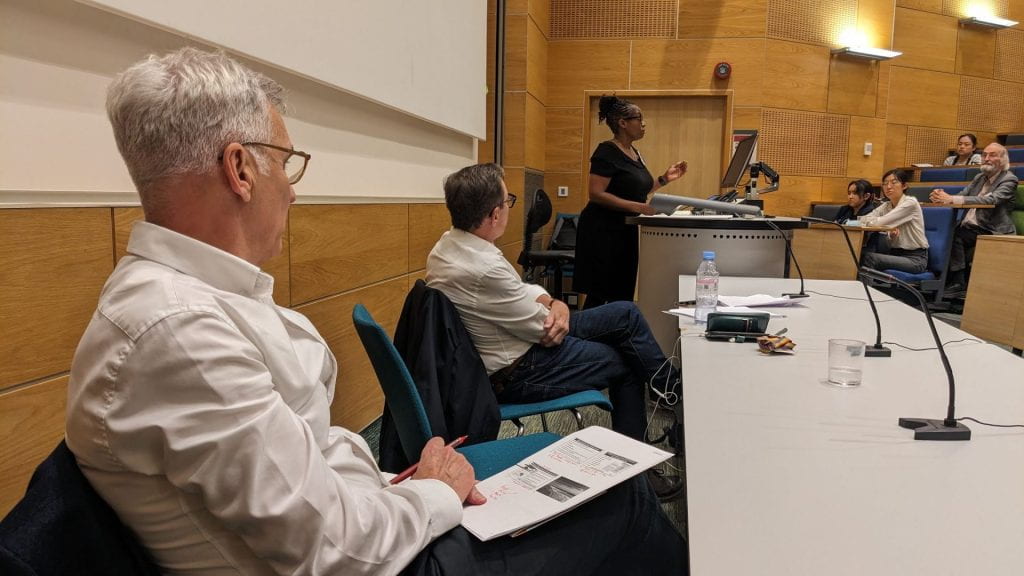IoMH Conference 2023 – a PhD student’s report
By iomh, on 29 September 2023
The fourth UCL Institute of Mental Health Conference explored a diverse range of topics including health economics, suicide prevention and cognitive neuroscience. UCL Wellcome PhD student Jennifer Fielder shares some of her highlights of the day.

As a PhD student in Mental Health Science, I was excited to hear some of the latest mental health research showcased by leading experts at the Institute of Mental Health (IoMH) Conference.
The first session on mind and body interactions followed warm welcomes from Professor Anthony David, director of UCL IoMH, and Professor Alan Thompson, Dean of the UCL Faculty of Brain Sciences. UCL’s Professor Sarah Garfinkel focused on how our ability to sense internal contexts and signals, known as interoception, shapes mental health. This covered her work on interoceptive training, where people learn to detect their heartbeats more accurately, which decreased anxiety in autistic adults for up to one year after the training. The talk finished with the exciting prospect that effective psychiatric treatments may work via interoceptive pathways. For example, one dose of the antidepressant Citalopram was found to increase interoceptive accuracy.
(more…) Close
Close

